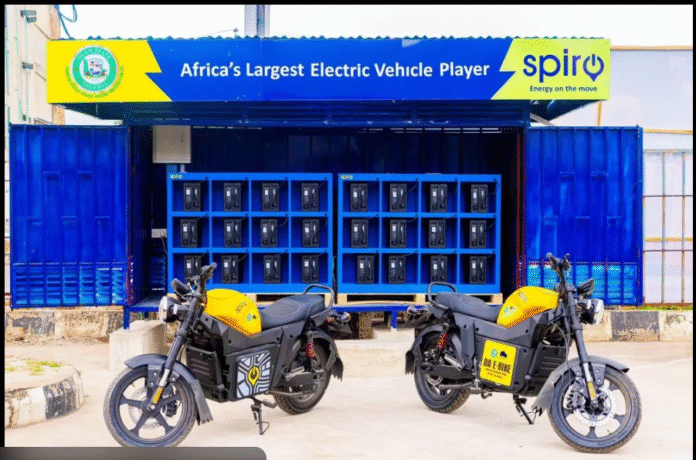A Landmark Investment Surge
African two-wheel electric mobility just crossed a major frontier. Spiro, a startup rapidly expanding its footprint across the continent, has secured US $100 million in new funding the largest investment yet in Africa’s e-mobility sector. Key to the raise is a US $75 million contribution from the Fund for Export Development in Africa (FEDA), the investment arm of the African Export‑Import Bank.
Scaling a Pan-African Mobility Model
Founded in 2022, Spiro is now operating in six countries, including Kenya, Nigeria, Rwanda, Uganda, Benin and Togo and has launched pilot programmes in Tanzania and Cameroon.
With this funding, Spiro plans to:
- Expand monthly bike production to 15,000 units from its assembly lines in Kenya, Nigeria, Rwanda and Uganda.
- Deploy over 100,000 electric motorbikes by the end of 2025, up from a much smaller base a year ago.
- Ramp up its battery-swapping infrastructure, aiming for thousands of swap stations across the continent.
Why This Matters for Africa
- Cost and performance advantage: Spiro’s e-bikes cost roughly US$800 compared to US$1,300–1,500 for petrol counterparts in some markets. The battery-swapping model reduces downtime and fuel costs.
- Jobs and local manufacturing: Beyond selling bikes, Spiro is assembling key components locally and increasing localisation of supply chains to 70 % within two years.
- Environmental and mobility impact: By replacing thousands of petrol motorcycles, the company contributes to emissions reductions and cleaner urban transportation.
Risks & Road Ahead
- High-capex model: Building battery‐swap stations, reliable energy storage, and manufacturing lines is capital intensive; long payback periods could strain the model.
- Infrastructure & power stability: In regions with unreliable electricity or logistics, scaling remains challenging.
- Competitive landscape: Other players (e.g., Roam, BasiGo) are also scaling, so differentiation and execution will be critical.

